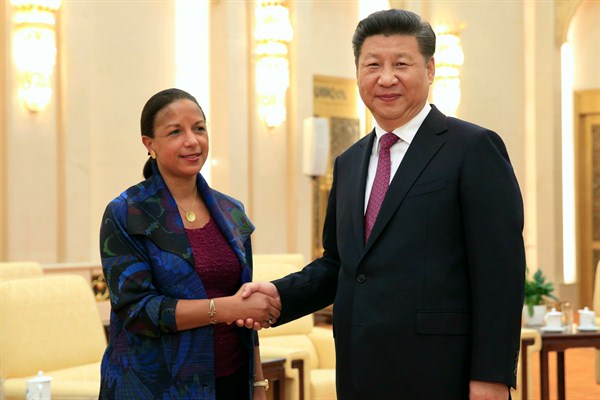U.S. National Security Adviser Susan Rice visited China last month, where she held talks with Chinese officials about the threat of terrorism and prospects for improving counterterrorism cooperation. In an email interview, Jeffrey Payne, the Manager of Academic Affairs at the Near East South Asia Center for Strategic Studies, discusses the state of counterterrorism cooperation between the U.S. and China. (The views expressed in this article are his alone and do not represent the official policy or position of the National Defense University, the Department of Defense or the U.S. government.)
WPR: How extensive is counterterrorism cooperation between the U.S. and China, and in what areas are they trying to expand cooperation?
Jeffrey Payne: China and the United States do not cooperate to any substantial degree on counterterrorism. However, countering violent extremism and counterterrorism are becoming more significant elements of bilateral security conversations. National Security Adviser Susan Rice’s recent visit to China featured frank conversations over concerns relating to the so-called Islamic State and other violent extremist organizations, reflecting a trend of China taking greater interest in such groups as its engagements throughout Africa and Asia have deepened. Besides discussions to enhance information-sharing devices between both countries, most progress in the realm of countering violent extremism and counterterrorism has focused on particular countries where U.S. and Chinese interests largely correspond. Afghanistan is a prominent example, where the U.S. has encouraged China to invest economically and to provide nonmilitary-related training and aid to the Afghan government and where China has taken the initiative to initiate talks between conflicting factions. In Iraq, where both countries have invested various resources, there is a similar effort to construct agreement on how both countries can assist the Iraqi government.

